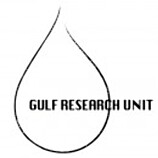
Archive: Gulf Research Blog
Blog articles from 2009 to 2012. The Gulf Research Unit is research programme based at the University of Oslo.
Corporate Social Responsibility: Saudi Arabia and International Standards
Denne artikkelen er over ti år gammel og kan inneholde utdatert informasjon.

By: Magnus Gravem
The Global Competitiveness Forum to be held in Riyadh January 24th – 26th 2010, can be argued to be one of many signs indicating that corporate social responsibility (CSR) is gaining increased importance in Saudi Arabia.
This annual forum hosts many international guest speakers, and also the King Khalid Responsible Competitiveness Award (KKRCA). This award is a co-operation between a governmental organization, Saudi Arabian General Investment Agency (SAGIA), and two non- governmental organizations, national King Khalid Foundation and the global AccountAbility.
Together, these three different organizations have taken initiative for the Saudi Arabian Responsible Competitiveness Index (SARCI), in which the best companies in different categories are awarded the King Khalid Award mentioned above.
SARCI is a program meant to support and assist companies in the Kingdom access new areas of value creation and in this way contribute to the national goal of making the economy of Saudi Arabia one of the top- ten in the world. To reach this goal, one of the key tasks for Saudi Arabian companies is to contribute to the development of human and social capital in the country, and in this way enhance the competitiveness of the Kingdom.
SARCI was first started in mid- 2008, and the first KKRCA was awarded in January 2009. 40 companies participated in the SARCI the first year, and the winners of the KKRCA were National Commercial Bank, Zamil Industrial and Al-Fanar. This year 65 companies are participating, and this years winner will probably have to be even more social responsible than the winners of last year. The initiative it self, and the growing numbers of participating companies, could both indicate that CSR is growing in importance in the Kingdom.
The cooperation between these organizations, two Saudi Arabian and one international, raises some interesting questions about how international standards of CSR (UN Global Compact, OECD Guidelines for Multinational Enterprises and soon-to-be-issued the ISO 26000 to mention a few) will affect the view of CSR in Saudi Arabia.
It could seem as many Saudi Arabian companies see their social responsibility limited firstly to the local community they are operating, and secondly to the national level. I would argue that this affect most of the CSR efforts in the Kingdom. This makes the cooperation between these three organizations interesting, especially with the international AccountAbility in mind:
Will this contribute to a understanding of social responsibility in Saudi Arabia that also becomes more focused on the regional and global levels? Will AccountAbility, as an global organization, try to affect Saudi Arabian companies to take more global social responsibility?
It could also be argued that another major difference between international and Saudi Arabian standards of CSR, are the core values. The international standards tends to emphasize human rights, labor rights, the environment and anti- corruption as their most important areas of focus, while this do not seem to be as important for Saudi Arabian companies.
As of my understanding, these values are not seen as important as other social issues in the Kingdom, and as the SARCI indicates, the development of human and social capital seem more important than it is in the international standards.
What will then happen when international organizations with a focus on CSR are involving them selves in the Kingdom? How will this affect the view of CSR in Saudi Arabia?
Will these international organizations try to affect Saudi Arabian organizations and companies to become more in compliance with international standards? I would argue that this is the most likely outcome of this cooperation, but this raises another question: How will Saudi Arabian actors react to this influence?
Will they embrace these new values, and immediately set aside the more “Saudi Arabian” values of CSR? Will they feel that these are ethnocentric values, and that these values might be functional in Western countries, but not work as well in the Kingdom? Or will this be gradually incorporated into the Saudi Arabian understanding of CSR? I would believe that international standards of CSR will become more important in Saudi Arabia with time.
Finally, the last question this cooperation also raises is the total opposite of the others. Instead of asking what the international community of CSR has to offer Saudi Arabia, we could ask what Saudi Arabia can contribute to the international community in the field of CSR. Could the system of CSR in the Kingdom work as a model of social responsibility for other countries? I would definitely argue that there are values in the Saudi Arabian understanding of CSR that, if incorporated by other countries, could make a major positive impact to societies all over the world.
Among these values are the importance of the society as a major value in it self, and a tradition of giving not for getting good publicity or any other benefits, but for making a difference for someone who needs it. Willingness to spread knowledge and expertise is also among important values of Saudi Arabian CSR that I will argue could be exported from the Kingdom with positive outcomes.
To conclude this blog, CSR is increasing in importance in the Kingdom, and have especially done so the last couple of years. The King Khalid Responsible Competitiveness Award handed out next week is one out of many signs of this. Still, the understanding of CSR in the Kingdom and the different international standards of CSR differ in many ways, and especially it seems as the core values are different.
I argue that this should be a two-way street, and that CSR- practices in Saudi Arabia have both a lot to learn from international standards, but also have a lot to contribute with to these standards. I believe that there is a graduate change in the field of CSR going on in the Kingdom these days, and that this will contribute to make the Saudi Arabian society better.
Then again, I believe Saudi Arabian companies have important values and experience in the field of CSR that could contribute to make societies outside the Kingdom better as well. The Global Competitiveness Forum in Riyadh next week might be an arena to start off this two-way communication, and 2010 can become the year where this communication begun.






